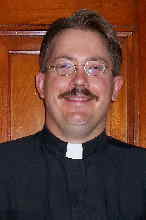The New Hymnal
I want to thank CPH for making such an appealing looking new hymnal. From the outside, it looks like something you want and need. However, what is on the inside leaves something to be desired. Our congregation uses both TLH and LW and we have little desire to go to a new hymnal. The only thing that would have drawn us into considering using it might have been if what we love about TLH was in the new hymnal. All the good hymns, as well as, the services of TLH included with some newer expressions of reverent and confessional hymnody. However, that is just not the case. Now, they say that the TLH service and TLH hymns are in the new hymnal. Some are and some are not! The TLH service is the TLH service, with all the "thee"s and "thou"s in there! I have heard for years that I should not support using language that is out-dated and not relevant to the generation of today. What they fail to understand is that the language of TLH is the language of the church. The "thee's" and the "thou's" take us out of the world and into the church. Holding onto the TLH language is far more than just something done because we are comfortable with or used to it. We hold on to TLH because the hymns are superior and the language is churchly. Why did the editorial committee choose to keep some of the old language and disregard other parts of it? It makes no sense. It seems arbirtary. On the other hand, I want to thank some of the modern hymn writers for their contribution. We plan on using them in the future. May God bless our Synod!


2 Comments:
Respectfully, your "language of the church" argument has no support in our Lutheran confessions or in our history. The choice to embrace Jacobian English in TLH was, in my view, a poor and shortsighted one for it has created among our people precisely a belief that there is something "sacrosanct" about archaic English.
Luther's work translating the Bible and his entire philosophy toward translation and language runs completely contrary to such a view. The Scriptures themselves run contrary to this view as well.
Luther's German was not a courtly ornamented form of the language, but was the language of the man of his day and that is what made his Bible so powerful and such a source of communication of God's Word.
Similarly, the NT is in Koine Greek, the common Greek of the day, not the Attic/classical Greek which was known and was, similarly, formal and archaic like Jacobian English is now perceived to be.
I believe it is a disservice ultimately to our people to inculcate among them the belief that Jacobian English is the "church's language."
Thank you very much for your comment. Your involvement in our Synod is much appreciated, valued and respected. I agree that the phrase "language of the church" may have been a bad phrase to use. However, the language of TLH has become, whether we like or it, the language of my church and many other churches that I have been at. To arbitrarily change some of that Jacobian language and not others, I just don't understand. Why were some of the hymns changed back to the TLH language and some not? Why was some of the old language in the TLH service used in the new hymnal and some not? Was it because of the reaction or response of the people as the project was unfolding? If the language should reflect the current language of the people, should it not be all or nothing? Luther and Koine Greek were going from one language to another. This is going from one form of English that is outdated to more common English. For what reason? So they understand it better? Can we not explain the language? Doesn't the Confessions speak of not doing "unnecessary" or "arbitrary" changes to our worship and liturgy just for the sake of innovation. We can discuss this all we want back and forth. But, the bottom line, as I see it, is: had the hymnal committee kept the entire language of the old TLH liturgy in the one setting in the new hymnal and a larger percentage of the language of the TLH hymns the same, you would have included a much larger number of congregations in the endeavor to bring our Synod back to liturgical uniformity. Just my humble opinion.
Post a Comment
<< Home